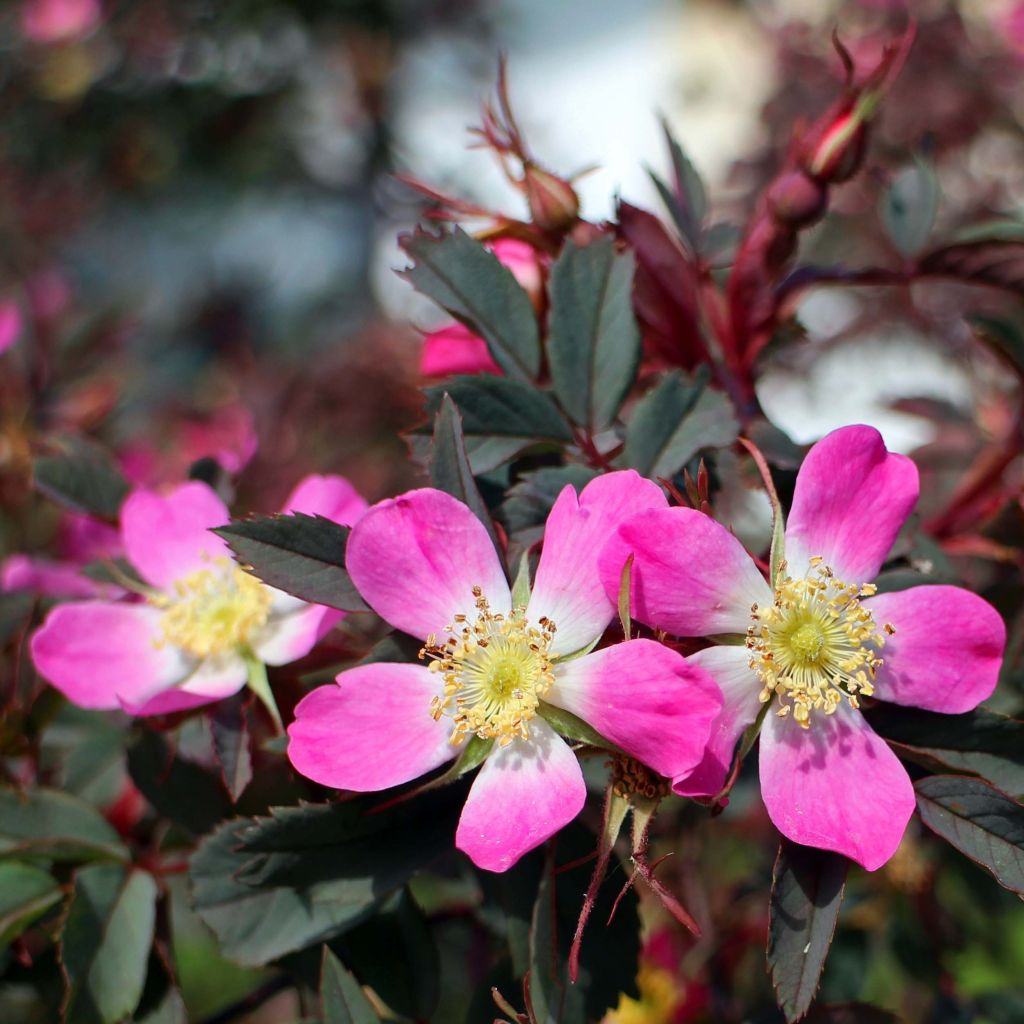

Rosa glauca Rubrifolia - Gallic Rose
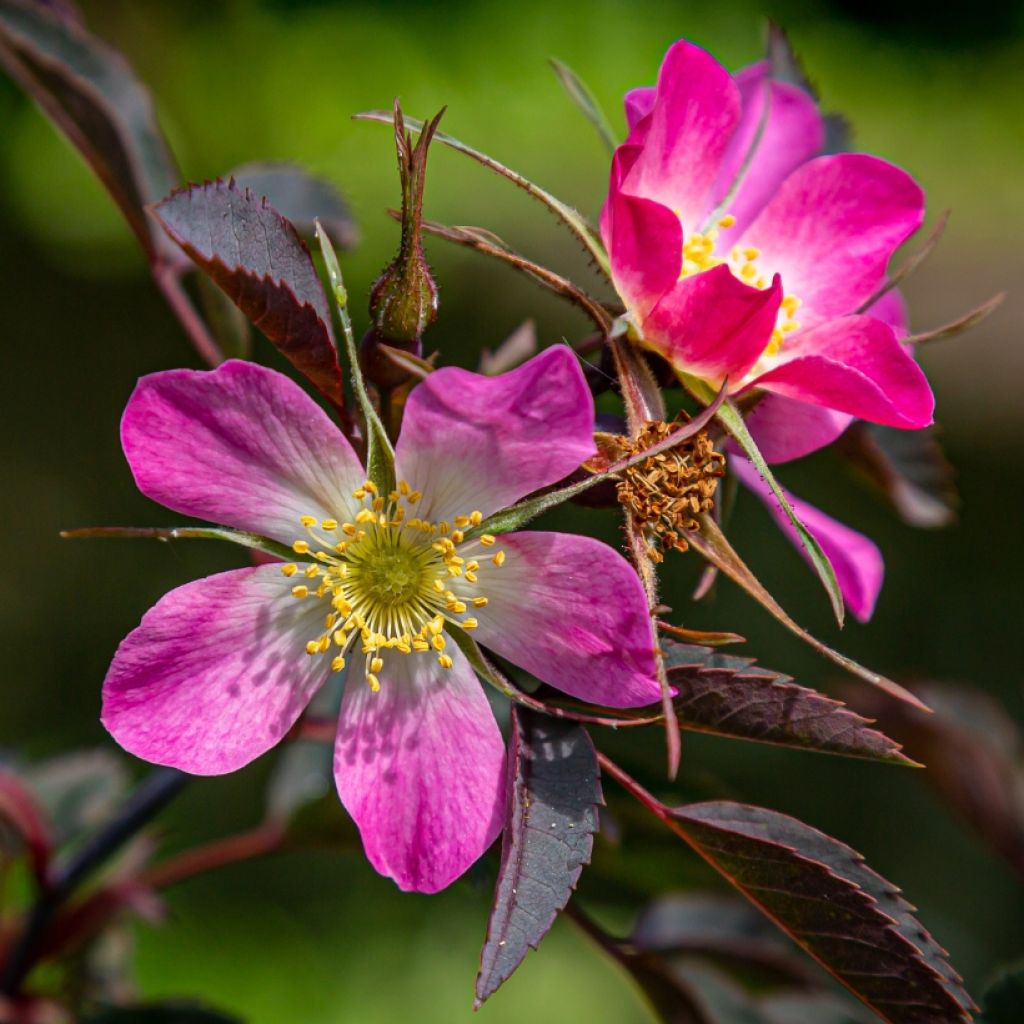

Rosa glauca Rubrifolia - Gallic Rose
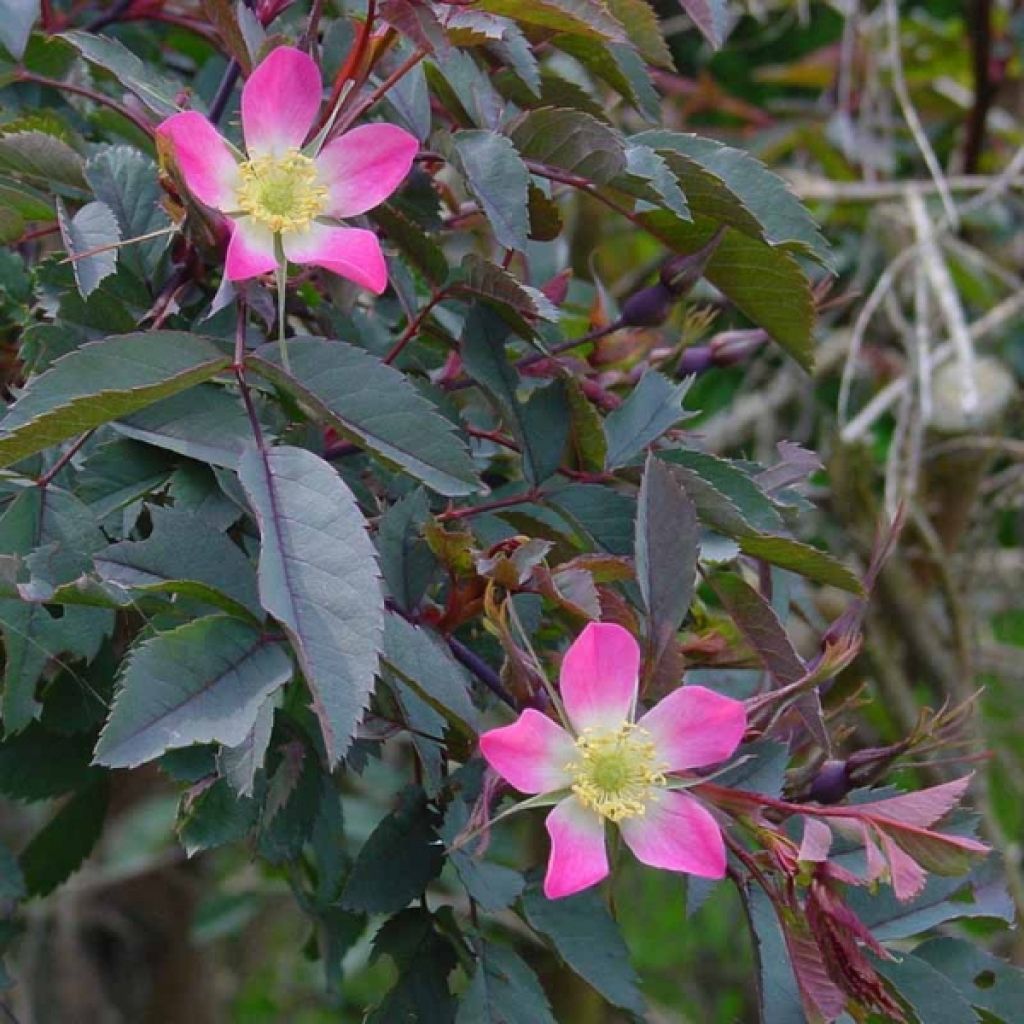

Rosa glauca Rubrifolia - Gallic Rose
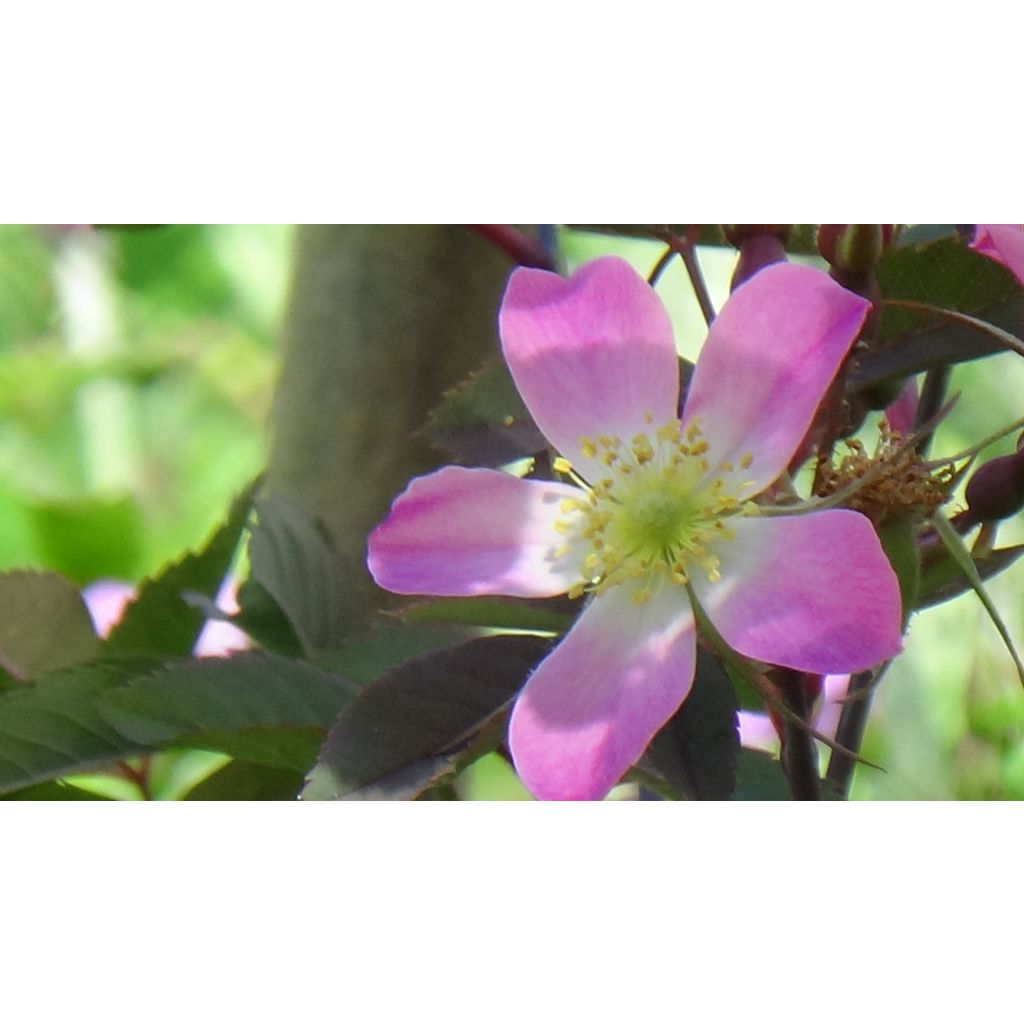

Rosa glauca Rubrifolia - Gallic Rose
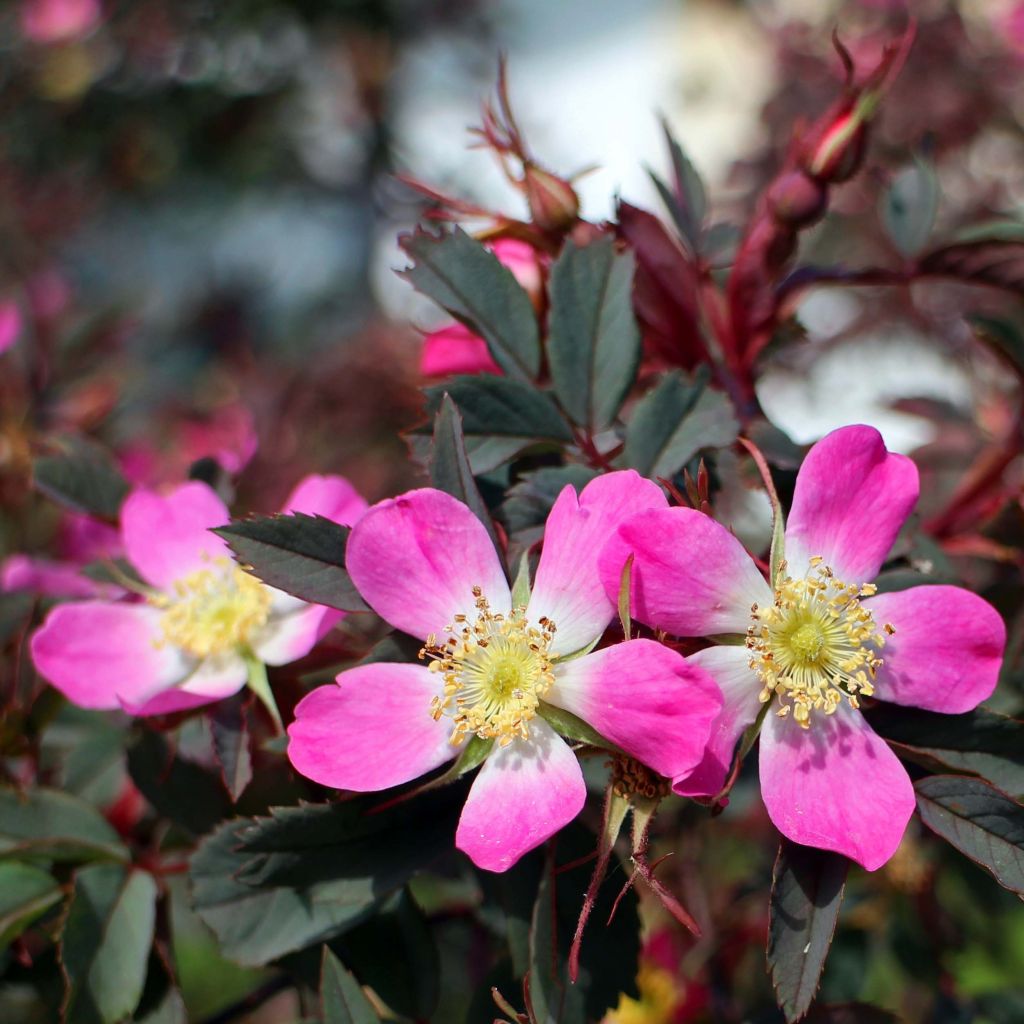

Rosa glauca Rubrifolia - Gallic Rose
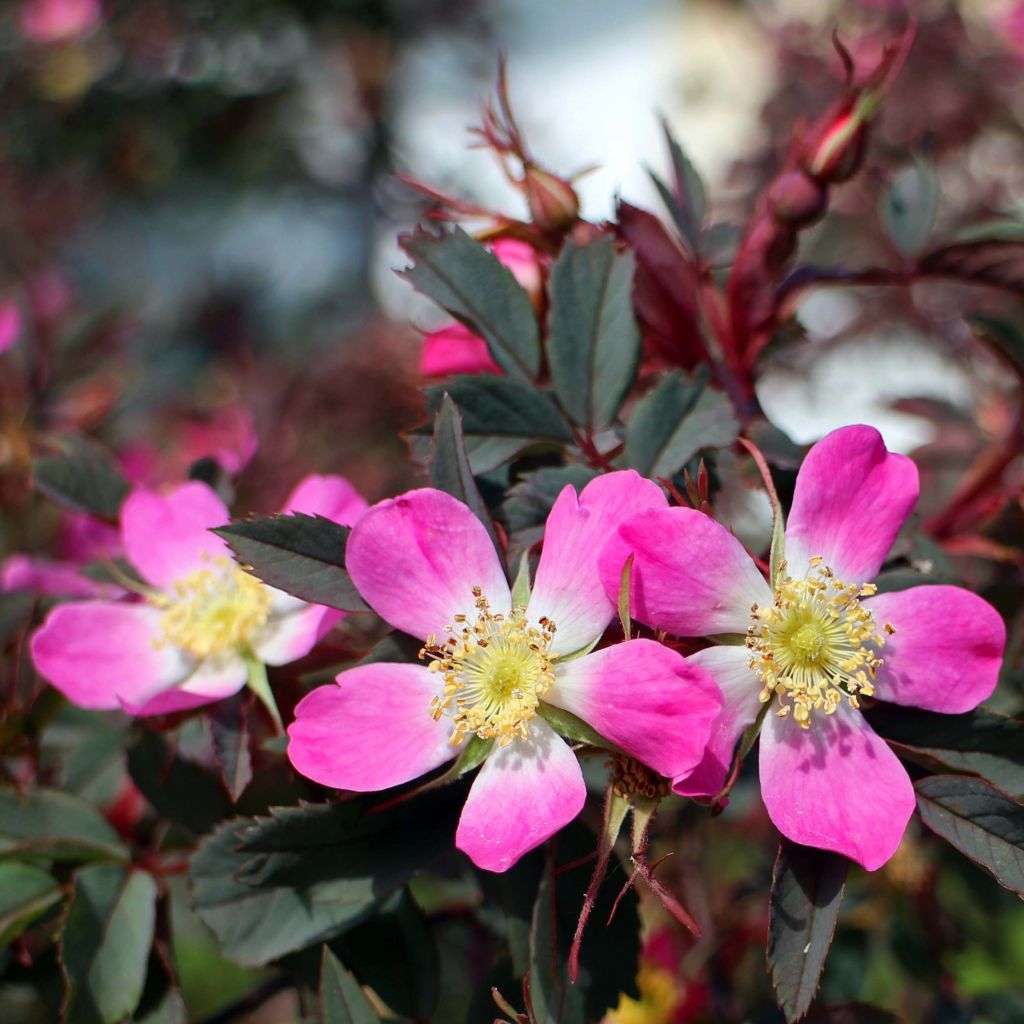

Rosa glauca Rubrifolia - Gallic Rose
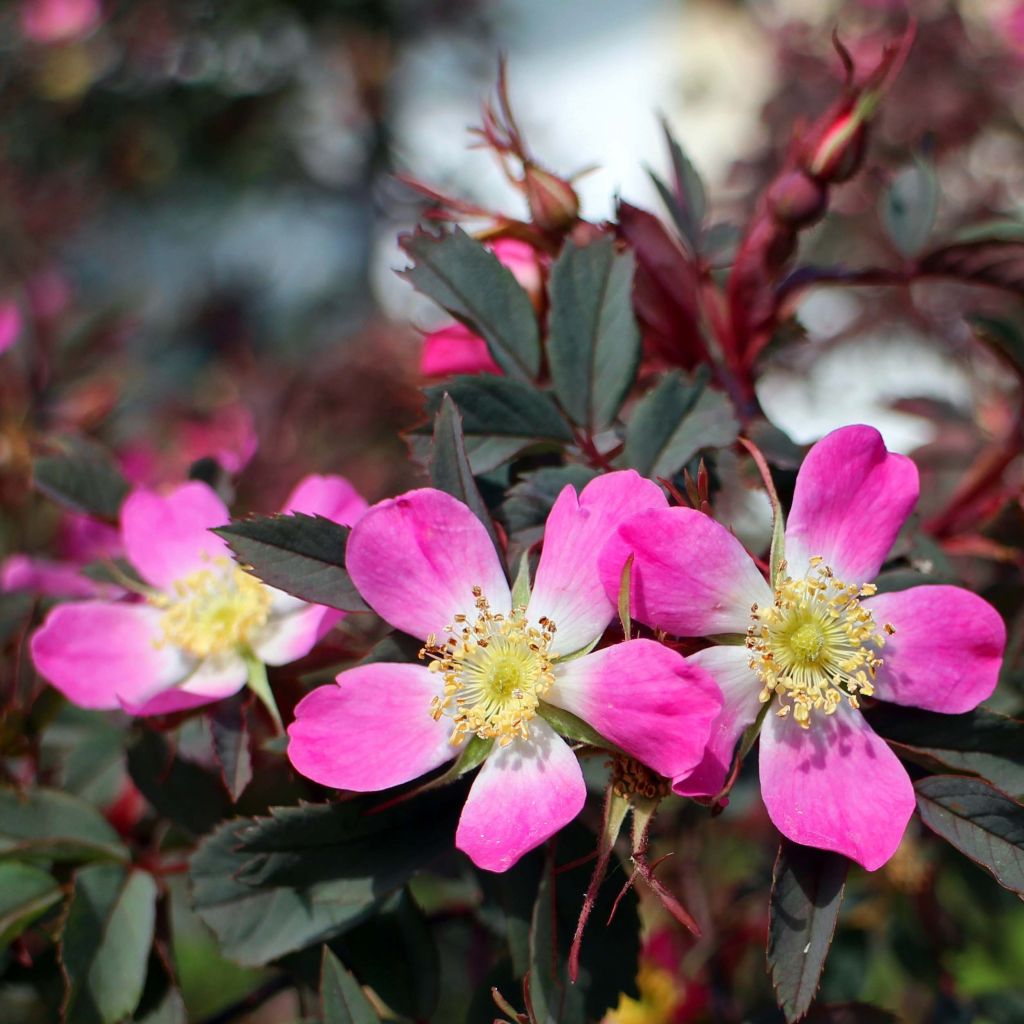

Rosa glauca Rubrifolia - Gallic Rose
View more pictures
Hide images
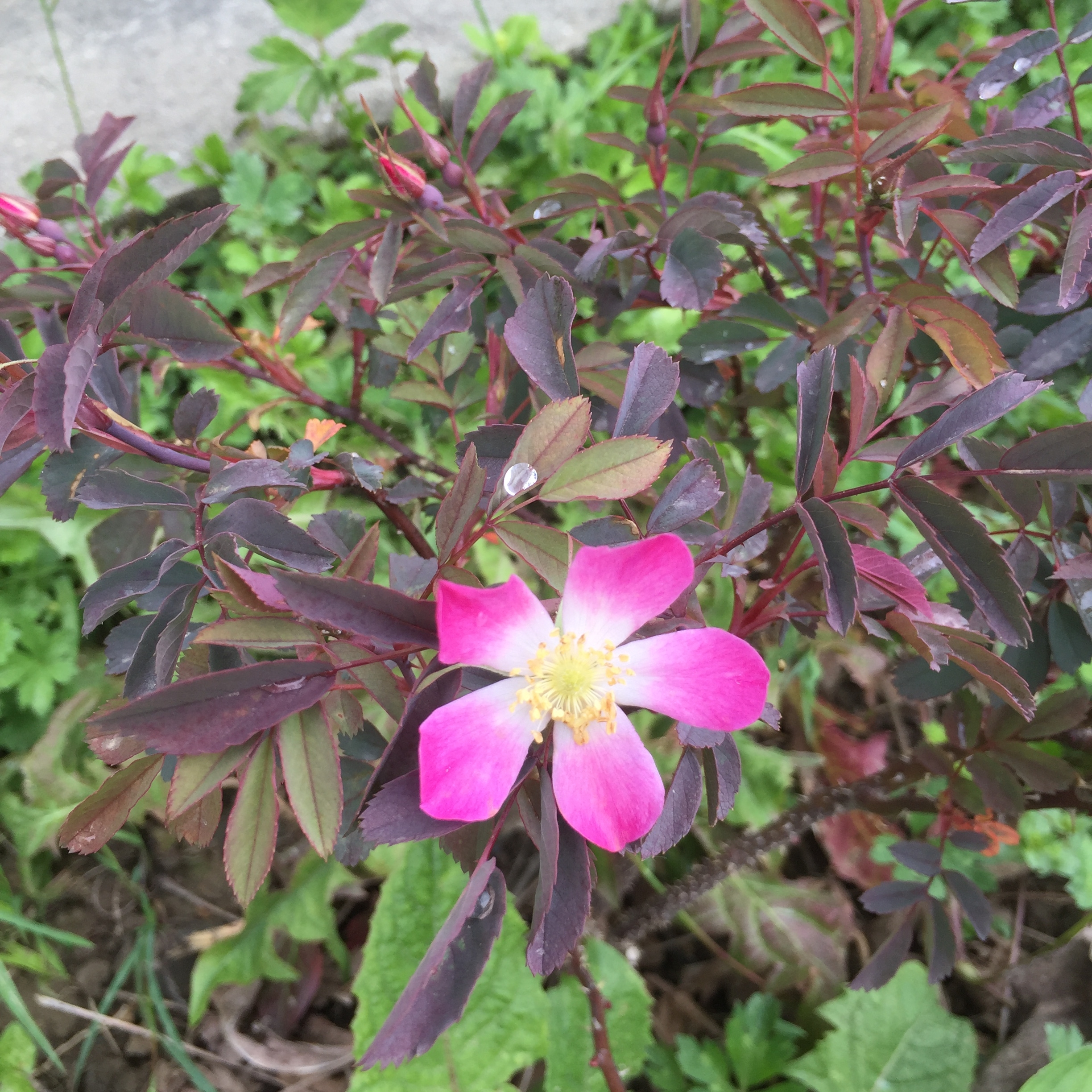
Lucille D.

Rosa Glauca
Lucille D. • 80 FR
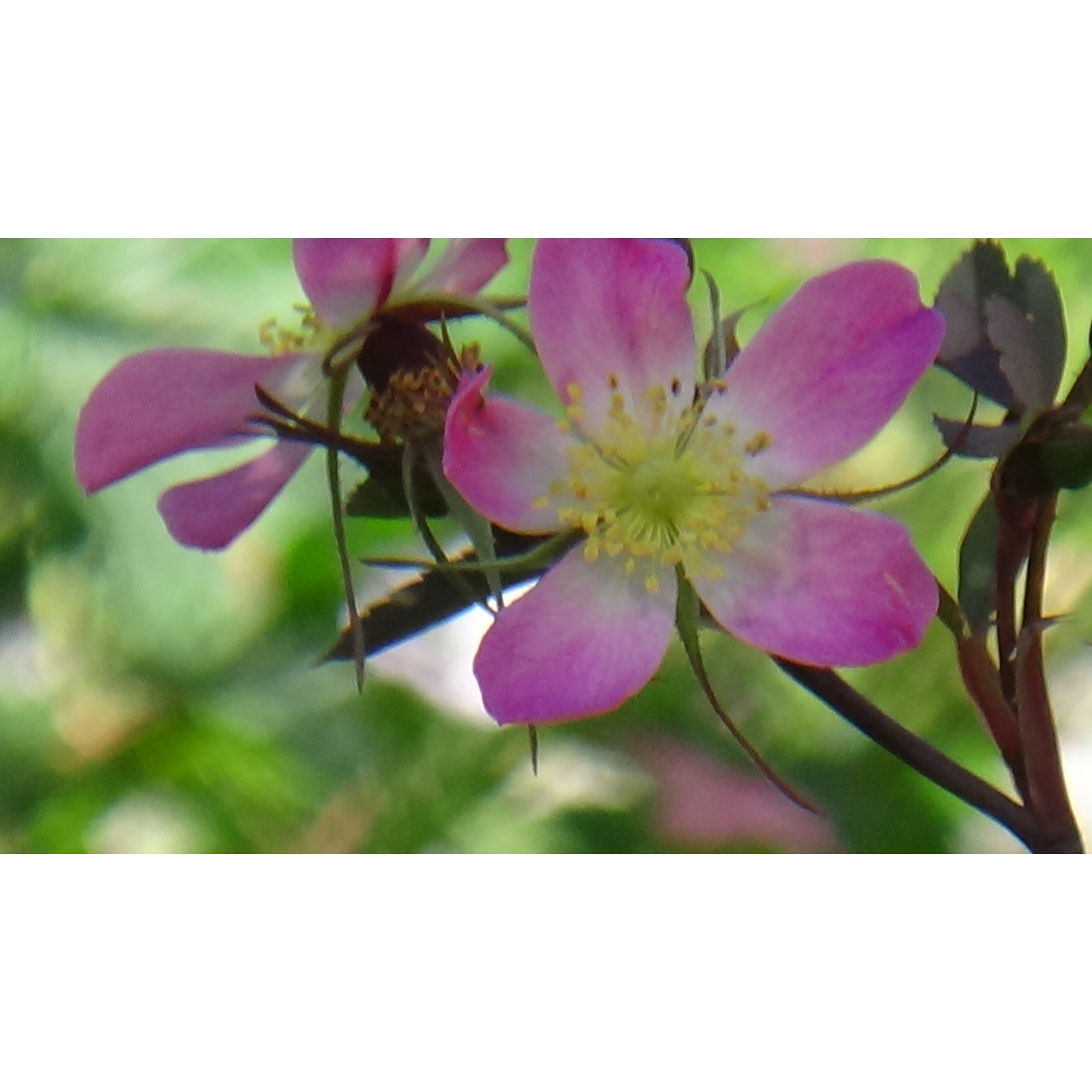
Françoise L.

No text to translate.
Françoise L. • 92 FR
Rosa glauca Rubrifolia - Gallic Rose
Rosa glauca
Red-leaved Rose
The Rosa Glauca rose bush was not packaged, it was flattened between two dry cardboard pieces, with no protection for the roots, and no labelling. I have doubts about the recovery of this dried-out plant; it's not good publicity for the nursery.
Norbert, 05/12/2025
Special offer!
Receive a €20 voucher for any order over €90 (excluding delivery costs, credit notes, and plastic-free options)!
1- Add your favorite plants to your cart.
2- Once you have reached €90, confirm your order (you can even choose the delivery date!).
3- As soon as your order is shipped, you will receive an email containing your voucher code, valid for 3 months (90 days).
Your voucher is unique and can only be used once, for any order with a minimum value of €20, excluding delivery costs.
Can be combined with other current offers, non-divisible and non-refundable.
Home or relay delivery (depending on size and destination)
Schedule delivery date,
and select date in basket
This plant carries a 6 months recovery warranty
More information
We guarantee the quality of our plants for a full growing cycle, and will replace at our expense any plant that fails to recover under normal climatic and planting conditions.
Description
The botanical bush Rosa glauca owes its success to its magnificent foliage. On its leaves with bluish or purplish reflections depending on the exposure, stand out very pink flowers that are quite charming. Next come the decorative red and shiny fruits that remain on the bush for a good part of the winter. Its flowers will attract the sympathy of bees, and its fruits will attract hungry birds in winter.
This bush is very vigorous and will thrive in sunny and semi-shade conditions. When combined with other bushes in a flower bed, its foliage will provide interesting contrasts. When planted alone, it will fully develop and use its natural charm to seduce you even more.
Rosa glauca or rubrifolia is a botanical species, meaning it exists as it is in nature. This rose bush is native to the mountains of central Europe. Despite the simplicity of its flowers, Rosa glauca has nothing to envy of cultivated roses, as it has received the prestigious Garden Merit award from the Royal Horticultural Society of England.
Report an error about the product description
Rosa glauca Rubrifolia - Gallic Rose in pictures


Plant habit
Flowering
Foliage
Botanical data
Rosa
glauca
Rosaceae
Red-leaved Rose
Cultivar or hybrid
Rosa canina Laxa (Wrapped bare root, 2L/3L pot)
Planting and care
Plant your glaucous botanical rose in a semi-shaded or sunny position. Roses are tolerant but will not appreciate an excess of limestone. They will adapt to any garden as long as the soil is well worked and rich enough. This rose is not particularly susceptible to diseases, so if you notice spotted or affected leaves, remove them without delay. To plant your rose, work the soil by crumbling it and place an amendment, such as dried blood or dehydrated horn, at the bottom of the planting hole. Water generously after planting to eliminate any air pockets. Water regularly for a few weeks to facilitate rooting.
Roses are often stained or unsightly at the end of summer, but this is not a problem for their development. These spots are not harmful to the rose, it is a natural phenomenon.
Pruning Rosa glauca is not necessary but can help maintain a compact habit from one year to the next. As it is very vigorous, there is no need to prune it severely. Prune in spring after the risk of frost. Take the opportunity to remove dead wood and aerate the centre of the bush a bit. For pruning, choose an eye that points outward and make a slanted cut just above it. Above all, do not remove faded flowers, as this would deprive you of decorative fruits.
Planting period
Intended location
Care
-
, onOrder confirmed
Reply from on Promesse de fleurs
Haven't found what you were looking for?
Hardiness is the lowest winter temperature a plant can endure without suffering serious damage or even dying. However, hardiness is affected by location (a sheltered area, such as a patio), protection (winter cover) and soil type (hardiness is improved by well-drained soil).

Photo Sharing Terms & Conditions
In order to encourage gardeners to interact and share their experiences, Promesse de fleurs offers various media enabling content to be uploaded onto its Site - in particular via the ‘Photo sharing’ module.
The User agrees to refrain from:
- Posting any content that is illegal, prejudicial, insulting, racist, inciteful to hatred, revisionist, contrary to public decency, that infringes on privacy or on the privacy rights of third parties, in particular the publicity rights of persons and goods, intellectual property rights, or the right to privacy.
- Submitting content on behalf of a third party;
- Impersonate the identity of a third party and/or publish any personal information about a third party;
In general, the User undertakes to refrain from any unethical behaviour.
All Content (in particular text, comments, files, images, photos, videos, creative works, etc.), which may be subject to property or intellectual property rights, image or other private rights, shall remain the property of the User, subject to the limited rights granted by the terms of the licence granted by Promesse de fleurs as stated below. Users are at liberty to publish or not to publish such Content on the Site, notably via the ‘Photo Sharing’ facility, and accept that this Content shall be made public and freely accessible, notably on the Internet.
Users further acknowledge, undertake to have ,and guarantee that they hold all necessary rights and permissions to publish such material on the Site, in particular with regard to the legislation in force pertaining to any privacy, property, intellectual property, image, or contractual rights, or rights of any other nature. By publishing such Content on the Site, Users acknowledge accepting full liability as publishers of the Content within the meaning of the law, and grant Promesse de fleurs, free of charge, an inclusive, worldwide licence for the said Content for the entire duration of its publication, including all reproduction, representation, up/downloading, displaying, performing, transmission, and storage rights.
Users also grant permission for their name to be linked to the Content and accept that this link may not always be made available.
By engaging in posting material, Users consent to their Content becoming automatically accessible on the Internet, in particular on other sites and/or blogs and/or web pages of the Promesse de fleurs site, including in particular social pages and the Promesse de fleurs catalogue.
Users may secure the removal of entrusted content free of charge by issuing a simple request via our contact form.
The flowering period indicated on our website applies to countries and regions located in USDA zone 8 (France, the United Kingdom, Ireland, the Netherlands, etc.)
It will vary according to where you live:
- In zones 9 to 10 (Italy, Spain, Greece, etc.), flowering will occur about 2 to 4 weeks earlier.
- In zones 6 to 7 (Germany, Poland, Slovenia, and lower mountainous regions), flowering will be delayed by 2 to 3 weeks.
- In zone 5 (Central Europe, Scandinavia), blooming will be delayed by 3 to 5 weeks.
In temperate climates, pruning of spring-flowering shrubs (forsythia, spireas, etc.) should be done just after flowering.
Pruning of summer-flowering shrubs (Indian Lilac, Perovskia, etc.) can be done in winter or spring.
In cold regions as well as with frost-sensitive plants, avoid pruning too early when severe frosts may still occur.
The planting period indicated on our website applies to countries and regions located in USDA zone 8 (France, United Kingdom, Ireland, Netherlands).
It will vary according to where you live:
- In Mediterranean zones (Marseille, Madrid, Milan, etc.), autumn and winter are the best planting periods.
- In continental zones (Strasbourg, Munich, Vienna, etc.), delay planting by 2 to 3 weeks in spring and bring it forward by 2 to 4 weeks in autumn.
- In mountainous regions (the Alps, Pyrenees, Carpathians, etc.), it is best to plant in late spring (May-June) or late summer (August-September).
The harvesting period indicated on our website applies to countries and regions in USDA zone 8 (France, England, Ireland, the Netherlands).
In colder areas (Scandinavia, Poland, Austria...) fruit and vegetable harvests are likely to be delayed by 3-4 weeks.
In warmer areas (Italy, Spain, Greece, etc.), harvesting will probably take place earlier, depending on weather conditions.
The sowing periods indicated on our website apply to countries and regions within USDA Zone 8 (France, UK, Ireland, Netherlands).
In colder areas (Scandinavia, Poland, Austria...), delay any outdoor sowing by 3-4 weeks, or sow under glass.
In warmer climes (Italy, Spain, Greece, etc.), bring outdoor sowing forward by a few weeks.






























